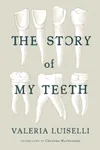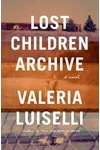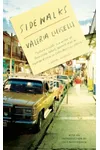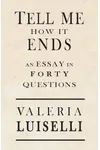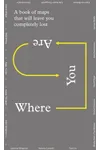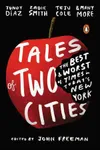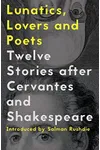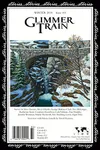Picture a Mexican storyteller whose words dance across borders, blending cultures and eras with poetic flair—meet Valeria Luiselli! Born in Mexico City in 1983, this critically acclaimed author weaves novels and essays that explore identity, migration, and the human experience. With a Ph.D. from Columbia University, Luiselli’s innovative storytelling has captivated readers worldwide, earning her a MacArthur 'Genius Grant' and a place among contemporary literature’s brightest stars.
The Making of Valeria Luiselli
Valeria Luiselli’s global upbringing shaped her unique voice. Born in Mexico City, she moved with her family to Madison, Wisconsin, at age two, then lived in Costa Rica, South Korea, and South Africa due to her father’s diplomatic work. This nomadic childhood, coupled with her mother’s involvement in the Zapatista movement, instilled a deep curiosity about identity and displacement. After studying philosophy at the National Autonomous University of Mexico, Luiselli pursued contemporary dance in New York before earning a Ph.D. in comparative literature at Columbia. Her early essays and fiction, written in Spanish, marked the start of a career that would challenge literary norms.
Valeria Luiselli’s Unforgettable Stories
Luiselli’s works are a vibrant tapestry of fiction, nonfiction, and experimental hybrids. Her debut, Sidewalks (2010), is an essay collection that roams from Venice to Mexico City, reflecting on motion and memory with lyrical prose. Faces in the Crowd (2011), her first novel, won the Los Angeles Times Art Seidenbaum Award, intertwining a young translator’s life in New York with the ghostly presence of Mexican poet Gilberto Owen. The Story of My Teeth (2015), a playful novel about an auctioneer selling famous teeth, was crafted with input from Mexican juice factory workers, earning the Los Angeles Times Book Prize. Her most celebrated work, Lost Children Archive (2019), tackles the U.S. immigration crisis through a family road trip, blending archival elements and earning the Carnegie Medal. Luiselli’s style—layered, polyphonic, and deeply political—draws from Latin American and European traditions, making each work a bold exploration of storytelling itself.
Her nonfiction, like Tell Me How It Ends: An Essay in 40 Questions (2017), is equally impactful. Inspired by her volunteer work as an interpreter for Central American child migrants, it’s a searing critique of U.S. immigration policy, hailed by the Texas Observer as a must-read. Luiselli’s ability to fuse personal narrative with social commentary sets her apart, creating works that resonate across cultures.
Why Valeria Luiselli Matters
Valeria Luiselli’s influence extends beyond literature. Her exploration of migration and identity speaks to a global audience, amplifying marginalized voices, especially those of Latin American migrants. Her innovative forms—blending archives, voices, and collaborative processes—have redefined what a novel can be, inspiring writers to push boundaries. Awards like the MacArthur Fellowship and the Dublin Literary Award underscore her impact, while her teaching at Bard College and advocacy for detained girls through literacy programs reflect her commitment to social justice. Luiselli’s work invites readers to question how stories are told and who gets to tell them, making her a vital voice in today’s world.
About Valeria Luiselli
- Born: August 16, 1983, Mexico City
- Key Works: Sidewalks, Faces in the Crowd, The Story of My Teeth, Lost Children Archive
- Awards: MacArthur Fellowship (2019), Carnegie Medal (2020), Dublin Literary Award (2021)
- Fun Fact: She once worked as a librettist for the New York City Ballet.
Ready to dive into a world of poetic prose and bold ideas? Grab Lost Children Archive and discover Valeria Luiselli’s unforgettable storytelling!

